When the Taliban took control of Afghanistan on August 15, 2021, the Afghanistan ambassador to Austria, Muniza Bakhtari, faced a serious dilemma. Should he continue to represent the former regime from his Viennese post or renounce his title and role?
“We were in a state of shock,” Bakhtari told Fox News Digital. “After a few days, my team and I came to the conclusion that we should continue as representatives of the Islamic Republic of Afghanistan.” The Taliban now call this country the Islamic Emirate of it.
For more than two years after that landmark decision, Bakhtari remained the only female ambassador to stay the course, working with a lean team from a small office in Vienna. In addition to assisting expatriate with their consular needs, Bakhtari continues to travel to conferences and meetings with fellow world leaders. Tragedies in Afghanistan. High on their list of concerns is the Taliban’s treatment of women.
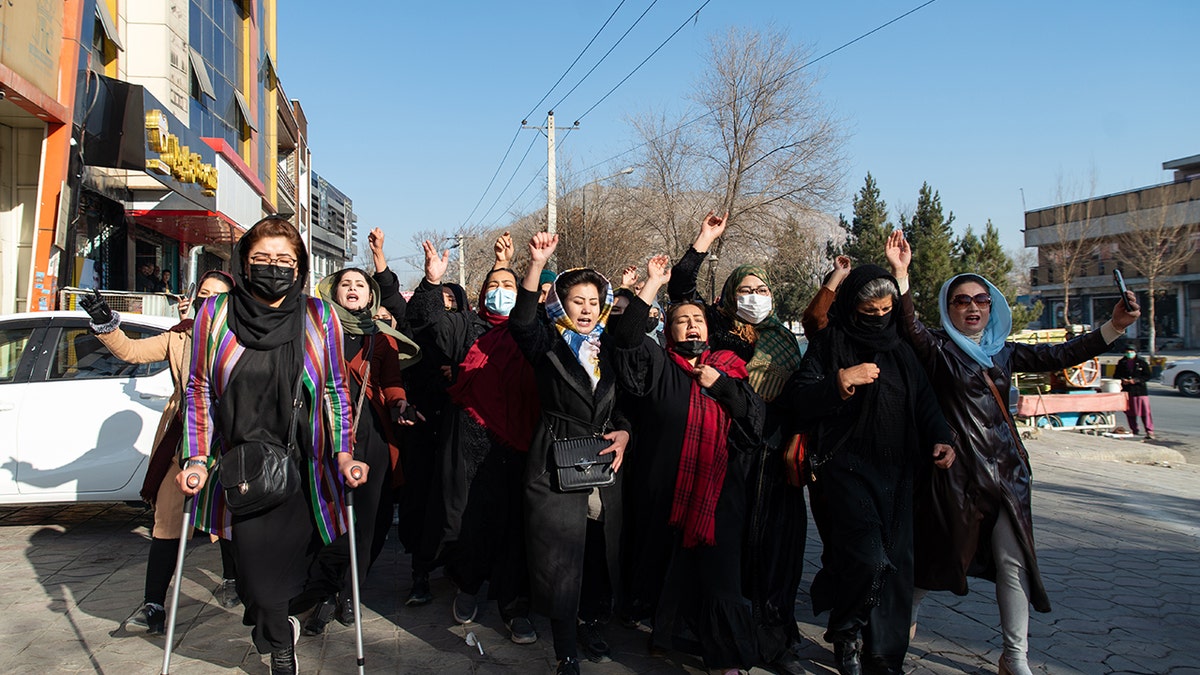
Afghans women protest against the Taliban’s new ban on women’s university access on December 22, 2022 in Kabul, Afghanistan. A group of women held a rally in Kabul against a government order banning women from entering universities. (Stringer/Getty Images)
“Five years ago, there were hundreds of women in our parliament, in our government, in civil societies … and now one woman cannot demonstrate her rights,” Bakhtari explained. He noted that the Taliban’s “violations and discriminatory actions” against women had increased in recent months. After closing domestic violence shelters in 2021, Afghanistan’s rulers have begun imprisoning women to protect them from gender-based violence.
In defiance of their own orders, the Taliban have recently arrested young girls and women who disobeyed orders regarding proper dress codes. These arrests have particularly targeted women in areas populated mostly by members of the Tajik and Hazara minority groups. These incidents include strict enforcement of laws governing unaccompanied travel for men and the mass layoffs of 600 women at two manufacturing plants.
Recent reports have highlighted more than 100 decrees and directives to date that have curtailed women’s liberties, denied them access to education beyond the sixth grade, and prevented them from moving freely, public Access to, or increased variety of, services is prevented. jobs
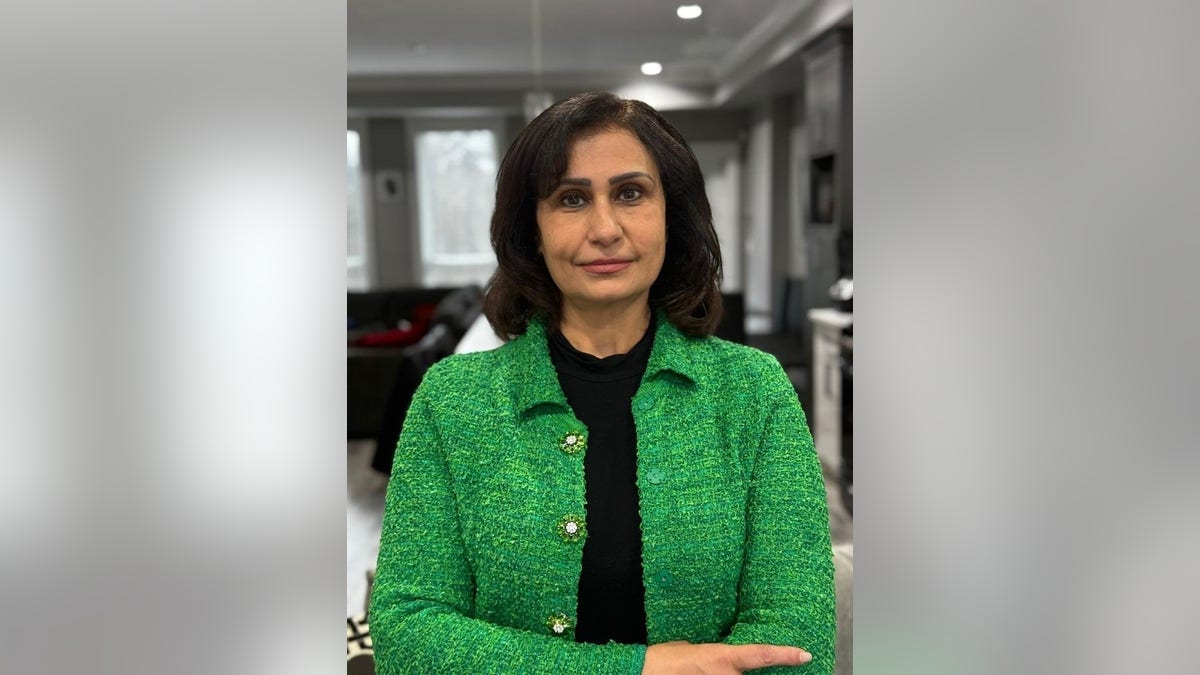
Austrian ambassador Maniza Bakhtari runs a small consular office in Vienna, where she advocates women and girls who have lost their rights under the Taliban. (Maniza Bakhtari)
Bakhtari is urging the West to look beyond these rulings to look at the social impact of Taliban abuses. The ambassador noted that human trafficking is on the rise, especially when female-headed families seek help fleeing the country due to Taliban restrictions. Bakhtari said that some women have been sexually assaulted while being taken to their destinations.
2023 of the State Department Report on Trafficking in Persons Confirms Bakhtari’s concerns in Afghanistan. According to the report, “some intermediaries and employers force Afghans into labor or sex trafficking,” while some Afghan women and girls are “used in sex trafficking and domestic slavery” after being sold to neighboring countries, or within Afghanistan. Is”. Although the former Afghan government had numerous laws and punishments for various trafficking crimes, the Taliban “reported no efforts by law enforcement agencies to combat human trafficking.”
Taliban to ban women from Jammu, parks as segregation, headscarf rules not followed
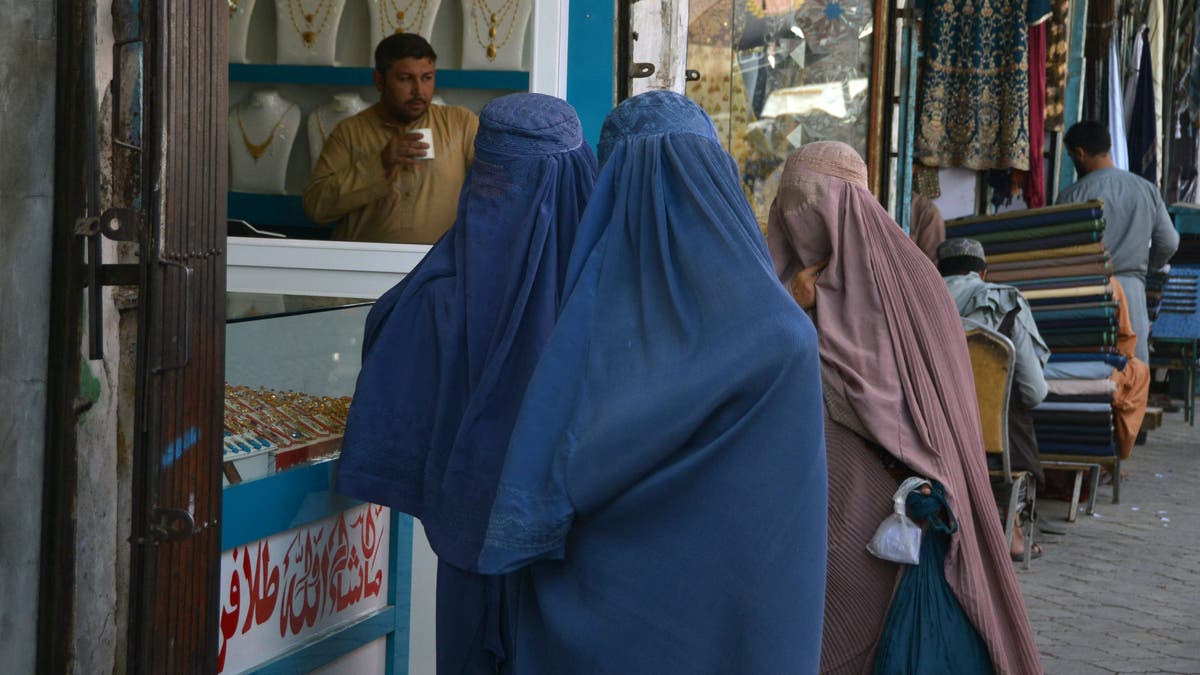
Afghan women wearing burqas walk along a market in Kandahar. (Javed Tanveer/AFP via Getty Images)
Bakhtari is also concerned about the increase in child and forced marriages. According to a report by the human rights organization Rawadri, the Taliban are forcing young girls into marriage despite Supreme Leader Haibatullah Akhundzada forbidding this practice.
In an environment of economic desperation, Afghan girls with no education or employment prospects retain their value in the form of dowry value. A recent Washington Post poll found that in one township in Herat province, 40 percent of families surveyed had either sold their young daughters in marriage or were waiting for buyers for their daughters. While the Taliban have denied the findings, author Stephanie Sinclair insists that life will soon be a “nightmare” for child brides who are “busy with household chores and often verbally, physically and sexually abused.” are victims of.”
Bakhtari noted that the loss of employment, social access, education and independence has led to “serious mental health consequences”, with “reports of depression and suicide, especially among young girls”. The Taliban reported that there were 360 suicides in Afghanistan in 2022. Comparatively, Ravdari found that in Badakhshan, one of them 34 provinces of AfghanistanBetween August 2021 and October 2023, 35 children committed suicide.
Two years after Biden left Afghanistan, the Taliban banned women from classrooms, most jobs
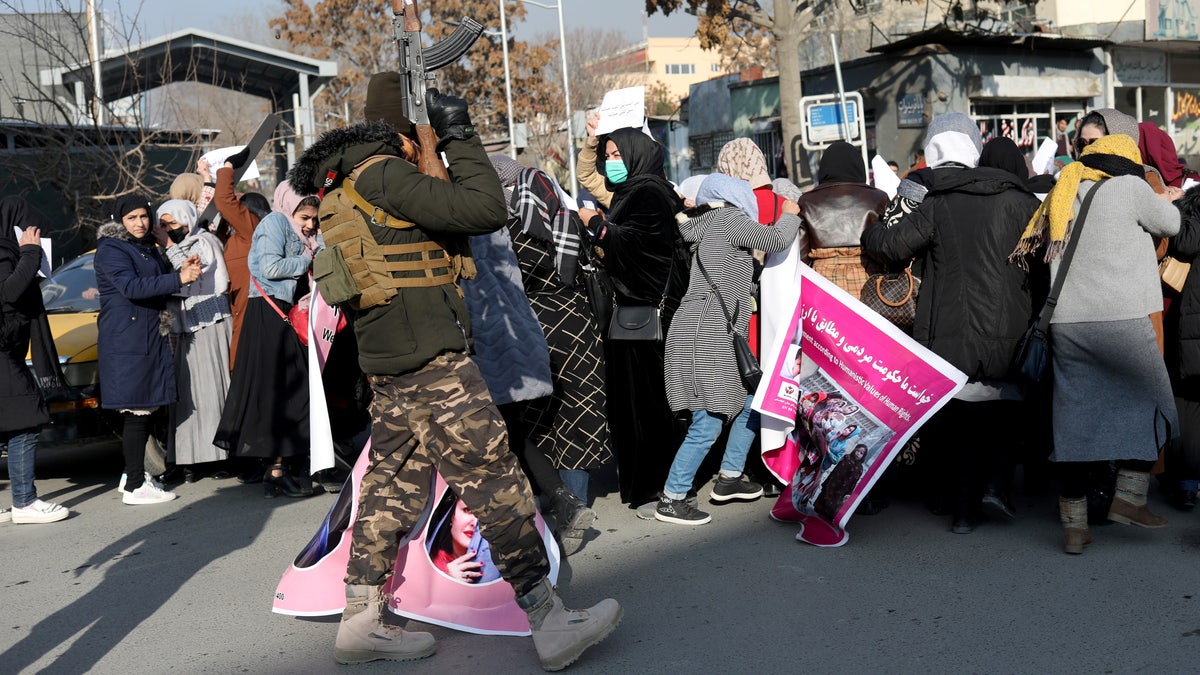
A member of the Taliban forces fires in the air to disperse Afghan women protesting against Taliban restrictions on women, in Kabul, Afghanistan, Dec. 28, 2021. (Reuters/Ali Khara)
Bakhtari believes that the Taliban’s actions are “a serious form of gender discrimination.” She has joined Afghan women and women’s rights advocates advocating for gender discrimination to be included in the UN draft Convention on Crimes Against Humanity. “Only by putting a label on these atrocities will we be able to mobilize real action against the perpetrators,” Bakhtari explained.
The current international reaction to the ongoing human rights abuses in Afghanistan disappoints Bakhtari
She believes that the exclusion of Afghan women from international discussions about Afghanistan’s future is “a form of violence against women.” Similarly, there are suggestions that the Taliban have achieved lasting peace in Afghanistan. “Peace does not mean the absence of war,” Bakhtari replied. “Peace means justice. Peace means equality for all in the country.”
For leaders who insist the Taliban need time to transform and modernize before facing international condemnation, Bakhtari points to ethnic breakdowns. Afghan women have already endured. “We have already lost three, four or five generations of our school-going women (so) if the Taliban leave today, we need at least 20 years to build again,” the ambassador insisted. ”
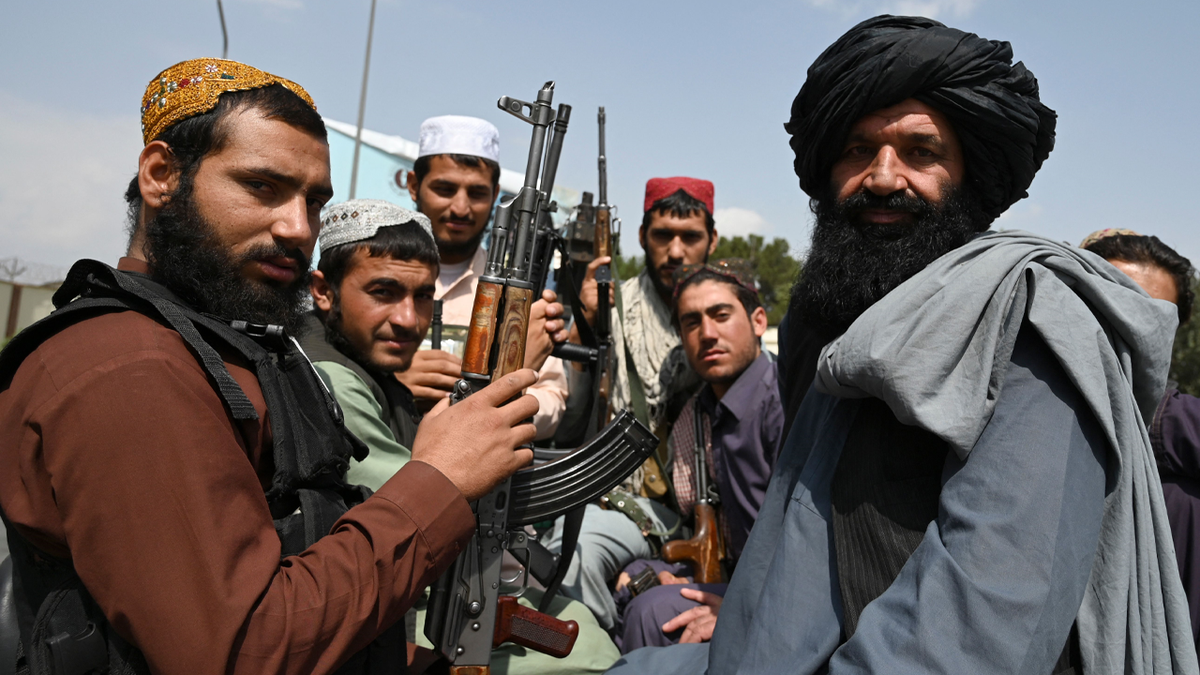
Taliban militants holding rifles. (Lawyer Kohsar/AFP via Getty Images)
Bakhtari believes that some Western leaders remain silent on the Taliban’s decisions because of the belief that they reflect overall cultural attitudes toward women among Afghans. Bakhtari acknowledged that there remain small pockets of Afghans in rural areas who do not value girls’ education and who expect women to wear the burqa.
Ambassadors fight for a more inclusive Afghan culture. He displayed family photos taken in the 1970s after his mother and mother-in-law graduated from college. No woman covers her head. Another photo showed Bakhtari’s parents on their wedding day. His father wore a western suit, his hair slicked back. Reminiscent of Elvis. Her mother wore a form-fitting dress with beehive hair.
“These are good examples of how Afghan society works,” Bakhtari said.